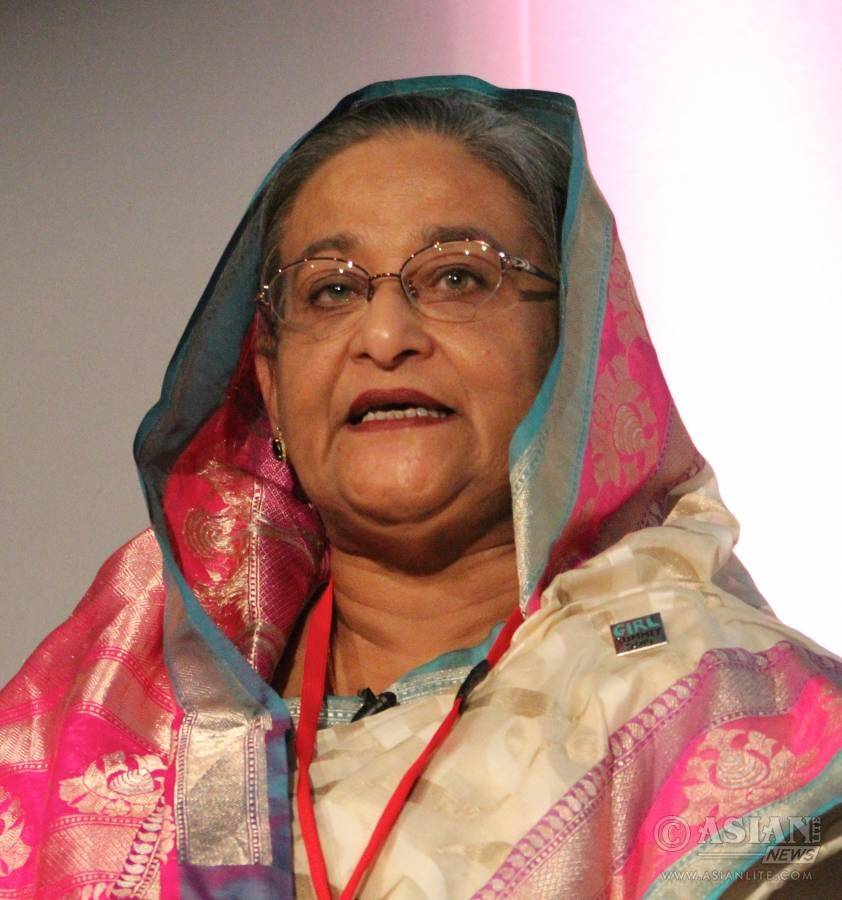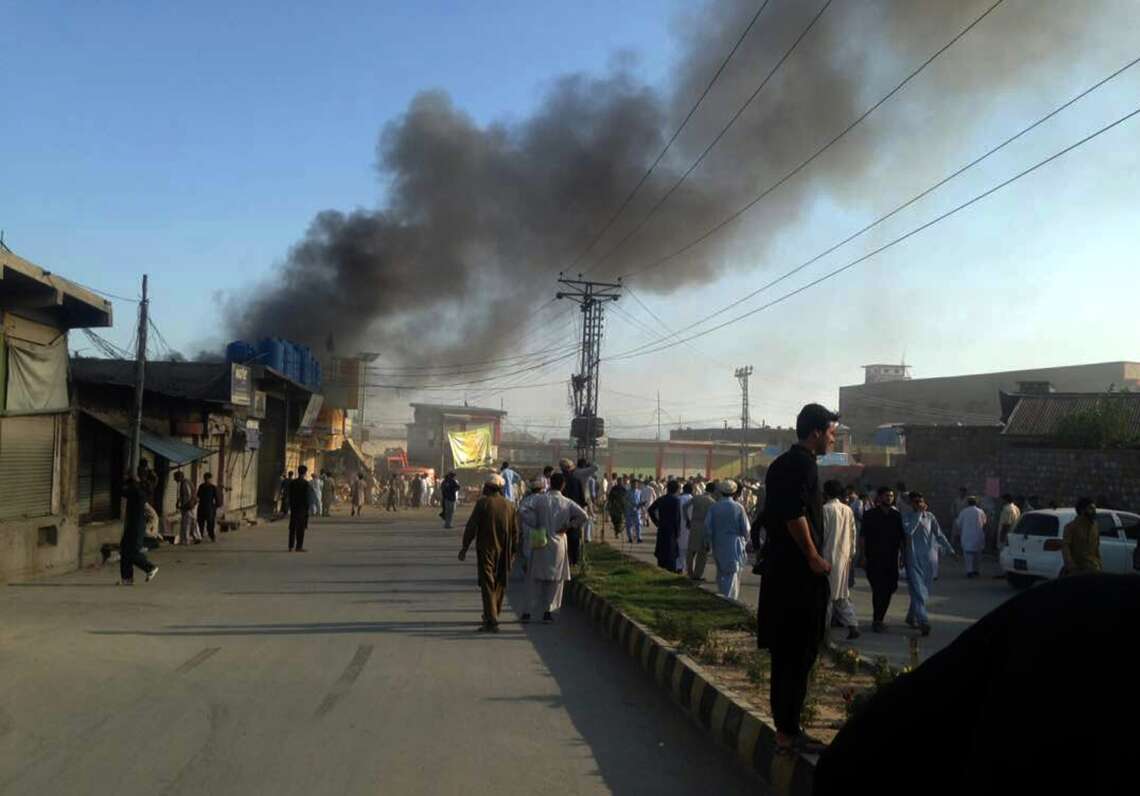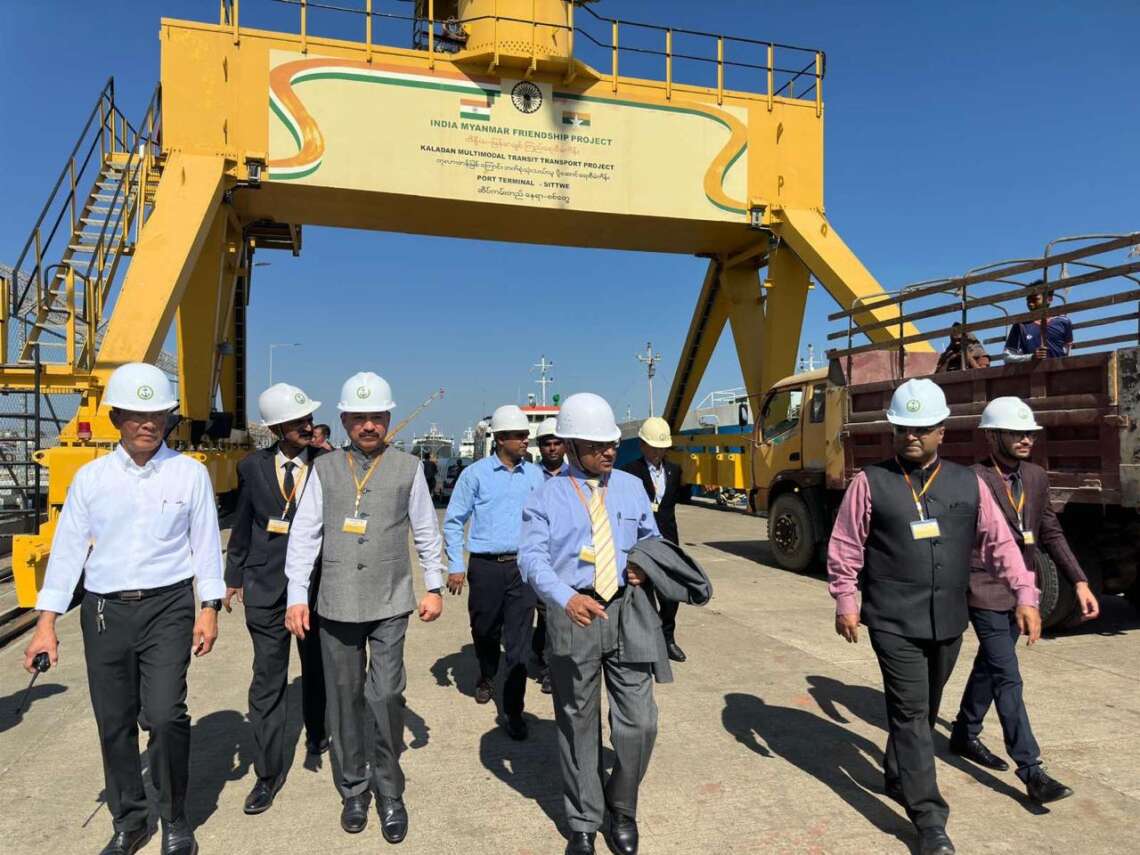China’s Foreign Ministry Spokesperson Guo Jiakun expressed China’s readiness to enhance political mutual trust, deepen Belt and Road cooperation, and expand people-to-people exchanges with Bangladesh.
China on Friday reaffirmed its commitment to strengthening its relations with Bangladesh, ahead of the visit of Bangladesh’s Interim Government’s Foreign Affairs Adviser Hossain from January 20 to 24.
Foreign Ministry Spokesperson Guo Jiakun expressed China’s readiness to enhance political mutual trust, deepen Belt and Road cooperation, and expand people-to-people exchanges with Bangladesh.
India’s Ministry of External Affairs earlier had said that New Delhi opposes China’s Belt and Road Initiative (BRI), which was proposed in 2013, as it passes through “parts of the Indian state of Jammu & Kashmir under illegal occupation of Pakistan, and … reflects lack of appreciation of India’s concerns on the issue of sovereignty and territorial integrity. Government has conveyed to the Chinese side its concerns about their activities in Pakistan Occupied Jammu & Kashmir and asked them to cease these activities.”
During a press briefing on Friday, Guo told the reporters, “China and Bangladesh are traditional friendly neighbours. Since the establishment of diplomatic ties, both sides have treated each other with respect and as equals, and supported each other on issues concerning respective core interests. We have set a good example of friendly interaction and mutually beneficial cooperation among countries.”
“China, as always, attaches great importance to growing its relations with Bangladesh. The year 2025 marks the 50th anniversary of China-Bangladesh diplomatic ties and the ‘China-Bangladesh People-to-People Exchange Year.’ China stands ready to work with Bangladesh to strengthen interactions at various levels, enhance political mutual trust, deepen high-quality Belt and Road cooperation and exchanges and cooperation in other fields, and advance the China-Bangladesh comprehensive strategic cooperative partnership,” Guo added.
On Sri Lankan President Anura Kumara Dissanayake’s state visit to China from January 14 to 17, Guo said that the meeting between Dissanayake and President Xi Jinping witnessed the signing of multiple cooperation agreements, including those related to the Belt and Road initiative, agricultural exports, and people’s welfare.
“At the invitation of President Xi Jinping, Sri Lankan President Anura Kumara Dissanayake paid a state visit to China from January 14 to 17. It was President Dissanayake’s first visit to China after taking office and is of great importance to the development of China-Sri Lanka relations. On January 15, President Xi Jinping held talks with President Dissanayake. The two sides reached important common understandings on deepening China-Sri Lanka strategic cooperative partnership and jointly building a China-Sri Lanka community with a shared future, making new strategic guidance for the development of China-Sri Lanka relations. The two heads of state jointly witnessed the signing of the Belt and Road cooperation plan and multiple documents on bilateral cooperation, including the export of agricultural products to China, people’s livelihood, and news and broadcasting, among others,” Guo said.
He added, “China attaches high importance to its ties with Sri Lanka in the neighbourhood diplomacy. China and Sri Lanka today have a historic opportunity to build on what has been achieved and take the relationship into the next chapter. China stands ready to work with Sri Lanka to follow up on the important common understandings reached between the two leaders, deepen our strategic cooperative partnership featuring sincere mutual assistance and ever-lasting friendship, work for high-quality Belt and Road cooperation, jointly build a China-Sri Lanka community with a shared future, and bring more benefit to our two countries and two peoples.” (ANI)

Hasina alleges deadly conspiracy post-ouster
Former Prime Minister of Bangladesh, Sheikh Hasina has alleged that there was a conspiracy to kill her and her younger sister Sheikh Rehana, the moment she was ousted from power.
“Rehana and I survived – just 20-25 minutes apart we escaped death”, Sheikh Hasina said on an audio speech posted on the Facebook page of her Bangladesh Awami League party late on Friday.
In August last year, a student-led movement ousted Bangladesh’s Prime Minister, Sheikh Hasina, after weeks of protests and clashes that killed over 600 people. Hasina, 76, fled to India and an interim government led by Nobel Laureate Muhammad Yunus was formed.
Sheikh Hasina recalled that there were conspiracies to kill her at various times.
“I just feel that surviving the killings on August 21, or surviving the huge bomb in Kotalipara, surviving on this time August 5, 2024, there must be a will of Allah, a hand of Allah”, she said.
“Otherwise, I’m not going to survive this time!” she added.
“You later saw how they planned to kill me”, Hasina said.
“However, it seems to be a mercy of Allah that I am still alive because Allah wants me to do something more”, she said.
“Although I am suffering, I am without my country, without my home, everything has been burned”, she said in an emotionally tearful voice.
Sheikh Hasina’s security was very high as she escaped several assassination plots. The 2004 Dhaka grenade attack took place at an anti-terrorism rally organized by Awami League on Bangabandhu Avenue on August 21, 2004. The attack left 24 dead and more than 500 injured. The attack was carried out at 5:22 pm after Sheikh Hasina, the then leader of opposition had finished addressing a crowd of 20,000 people from the back of a truck. Hasina also sustained some injuries in the attack.
The Kotalipara bomb was another plot to kill Sheikh Hasina that she referred to in her audio message. The 76kg bomb was recovered on July 21, 2000, and two days later, the 40 kg bomb was recovered at Sheikh Lutfor Rahman Ideal College in Kotalipara, where Awami League President and the then leader of the opposition Sheikh Hasina was supposed to address the rally on July 22, 2000. (ANI)
ALSO READ: More troubles await China in 2025
ALSO READ: Sri Lankan President due in China on Jan 14














